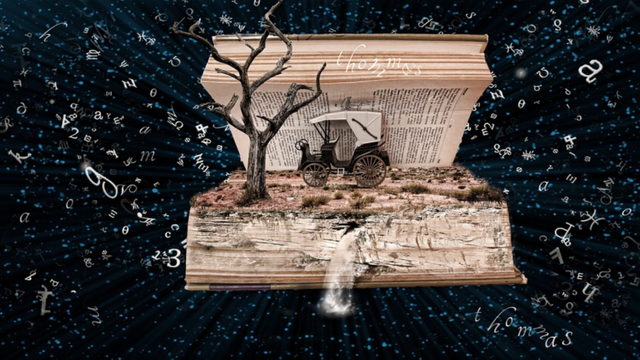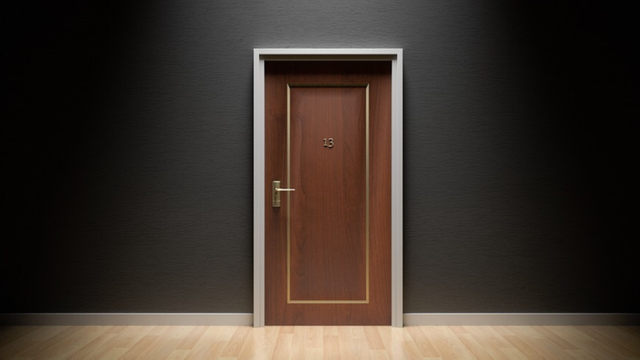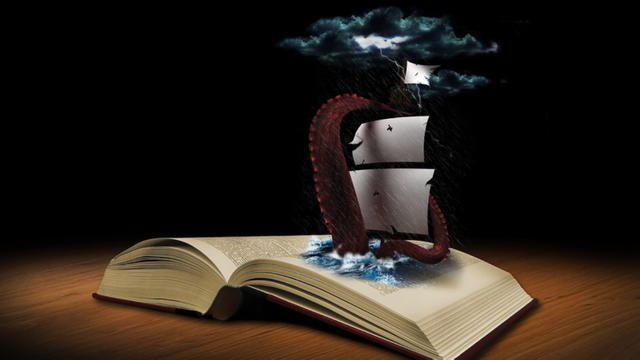The Most Dangerous Book in the World: Session 4 recording, plus details for session 5

Once it was called the most dangerous book in the world. Anthony Powell remembered smuggling a copy of the original Shakespeare and Company edition of Ulysses from Paris. Even George Orwell was reportedly elated by the possibility that he had set eyes on Joyce in the Deux Magots cafe in 1928, a popular meeting place for Parisian writers and intellectuals, and in the process citing Ulysses as one of his influential books.
In the 1920s, publishers were fined and ordered to cease publication of Ulysses, and up to the 1930s publishing houses waged years-long legal battles just so they could publish the novel. Part of the reason behind all of that is that James Joyce was in many ways ahead of his time: He entertained uncommon thoughts and ideas in a time where uncommon thoughts were deemed dangerous. Luckily for us, he didn’t shy away from putting those thoughts in this literacy work of art.
Almost a century later, here we are still trying to decipher the mysteries that he left us by creating an international Book Club hosted by a Blockchain-based platform.
If Joyce was reading this today, he would probably be as bewildered as he left us with his mind-stretching puzzles.
For those who missed it, here’s a quick recap to last Monday’s meeting, session 4 of the Official Steemit Book Club.
CHAPTER 3: PROTEUS
From the very beginning, we dive deep into the mind of Stephen Dedalus as he attempts to forge his own art and aesthetics. In fact, most of the chapter consists almost entirely of Stephen’s stream-of-consciousness thoughts.
This is one of the toughest chapters in Ulysses, and genius mythology professor Joseph Campbell tells of buying the book in Paris when it first came out. Upon getting this chapter, he stormed into the publisher’s office in a flurry, and demanded to know what this incomprehensible nonsense was all about.
The publisher, Sylvia Beach, gave him a guide to Ulysses that enabled him to get a footing in the world inside the book, and Campbell became a convert—reading the book some 52 times afterward, and each experience was a new revelation.
Chapter 3 opens with Stephen wandering along the beach, contemplating the difference between the material world in its true form and the way his eyes (and ears) present it to him.
At first impression, Stephen briefly seems to entertain some sort of philosophical solipsism, the concept that the world only exists in our individual perceptions of reality. But soon enough, he starts going through the practical refutation of this theory while slapping his walking stick against a rock.
Stephen's initial dilemma in Proteus is purely philosophical. The idea that all things are bound up in inescapable change ("ineluctable modality"). He wonders about the nature of reality, if sounds exist even when there are no conscious beings to hear them.
Does an object exist if no one sees it? He seems to wonder.
The first two paragraphs of Proteus are fairly hard ones unless one starts to understand Joyce’s tream-of-consciousness approach and begins to understand the complexity of Stephen's reflections as he ponders the question of what is real, and what is merely an appearance.
He seems to believe that we all inevitably see merely representations of reality, and never reality itself.

The very first sentence in the chapter “Ineluctable modality of the visible,” is ostensibly a direct reference to Aristotle’s Of Sense and the Sensible, that what is perceived by the eye is not necessarily implicit in the subject itself.
Aristotle believed that we are first cognizant of bodies through their translucence or transparency (the diaphane) and how transparency is something so common on nature and contrary to popular belief it is not exclusive to things like glass or water.
Stephen remembers how Dante judged Aristotle to be a genius and quoted him in Italian: Maestro di color che sanno, "master of those who know."
Opening his eyes, Stephen notices two midwives, Mrs. Florence MacCabe, a widow and another woman. And strangely enough, he immediately starts imagining that one of the women has a miscarried fetus in her bag.
As his thoughts keep drifting away thinking about birth, conception, Adam and Eve… He starts entertaining stranger yet humorous thoughts mainly picturing the umbilical cord as a telephone line running back through history through which he could place a call to “Edenville.”
Dedalus ultimately comes to the conclusion that he was “made not begotten,” in that his soul was created out of nothing and bears no relation to his biological parents.
This sets the stage for the Odyssey parallel that runs through the book: That Stephen is a metaphorical Telemachus in search of his metaphorical (and non-biological) Odysseus father Leopold Bloom.

This is foreshadowed in an amazing paragraph in the middle of the chapter, in which Stephen recounts a dream that foreshadows the Circe dream-like chapter of the book where he and Bloom connect.
Chapter Three has a fairly obvious theme of change and transformation that seems to be in a direct correlation to the Homeric character of Proteus, the shape-shifting God of the sea who could change forms at will.
As you’d expect, this chapter is full of transformations of all sorts: reproduction, reincarnation, and material change.
The first two sections of Ulysses were not especially what you call easy reads, but this one stepped it up a notch. It was also humorous at times, as when Stephen Dedalus is trying to write a poem and playing with the rhyme scheme.
Fortunately, the next chapters of the book enter Bloom’s more prurient and less philosophical world, and the going gets lighter and more fun. So we hope that you can join us now that we are out of the woods and into the meat of the novel.
If you have any comments or questions, please note that the Comments section of this post will also serve as a discussion forum for the current reading. Meanwhile, you can find below the recording of entire session:
https://soundcloud.com/user-655948001/steemit-book-club-part-4
NEXT WEEK’S SBC CALL
Steemit Book Club, Session 5
Book: James Joyce, Ulysses (Preferably Gabler Edition)
Reading Assignment: Chapter four (“Calypso”)
Date: Monday, October 10th Time: 6 p.m. PST / 9 p.m. EST / 2 a.m. GMT / 11 a.m. (Tuesday) UTC
Phone: (800) 719-6100 or (218) 339-7800, access code 629-1831#
Web audio link (and location for international call-in numbers): https://hello.freeconference.com/conf/call/6291831
Chat: #steemit-book-club channel on steemit.chat
Extras and Bonuses
Bonus #1: A short podcast interpreting Ulysses line by painstaking line: http://blog.frankdelaney.com/re-joyce/
Courtesy of @asaule
Bonus #2: If you’re looking for an audio to listen while driving, don’t miss out on the extensive wisdom of Joseph Campbell: http://www.dailymotion.com/video/x2hy62n_wings-of-art-joseph-campbell-on-james-joyce-2-6_creation
Courtesy of @shawnlauzon
Bonus #3: It’s basically a book about “the least you need to know” to understand and love Ulysses. https://www.amazon.com/Read-Love-James-Joyces-Ulysses-ebook/dp/B00N2A6QN0/
Courtesy of @tyger
Don't forget to download this one-page map to Ulysses, it will be a huge help with the readings!
Best,@neilstrauss, @the-alien, and the #steemit-book-club
Note: The majority of this post was written by @the-alien. And I don’t know what you did, but you killed it with this. Thanks. Been great doing this together. And all because of a Comment you left to my introduceyourself post on Steemit. Pretty cool.
Cool review and poignant title kept on drawing me in! thanks, namaste :)
The Man in the Mackintosh rides again! Great post, Neil and Adil. Loved Ulysses and your breakdown of it!
Was a wonderful mind twist! Look forward to tonight's session! :)


source: desktopnexus.com
Did you ever send out invitations to the first session of the book club? I didn't see anything here or on chat on what was supposed to be the first day.
Never mind. I don't know how I missed that! :(
Totally my bad! I was checking the first Book Club post comments to send invitations to everyone who seemed interested from the comments, I realized you were getting married so immediately I thought to wish you and Matt congratulations and I forgot about sending you Book Club invitation.
Sorry!
I just sent you an invitation to the Book Club chat room, I send reminders every Monday with call details.
It's not that late, and I hope you can join us
OH...I thought I was going insane, and somehow failed to understand how to join! It's ok. Do you think it's still worth joining at this stage? I think I can do the reading in time. I wonder if I still could make 75% of the sessions.
I don't think that will be a problem at all, plus it was mainly my fault so you don't have to worry about that 75%. But even by those parameters we have done only 4 sessions so far so it will be ok. :)
And yes, I do believe it's still worth it to join a this stage, we only did 3 small chapters so far.
Great, thank you!
Hi Alien,
Thanks for all your help with the recordings.
I'm trying to play catch up and am wondering whether the parts 2 and 3 recordings are able to be made available via soundcloud again, please?
Not being able to make it to the book club (yet), I appreciate these posts. Sometimes I enjoy analysis more than reading the actual work
Try the actual work too. Promise it's better than the analysis!
Yikes Campbells readings of the book were some 52 times! WOW! And to no surprise he had some new experiences and revelations reading Ulysses.
Big Campbell fan here...so, if he manged to struggle with the book and eventually to love it, maybe I'll give it another chance, too! I found it overly confusing on my first try at it, but glad to see I'm not alone in that.
Here is a good audiobook version. Only found two for free and this is the superior one; its up on youtube but here it has no annoying ads.
https://archive.org/details/Ulysses-Audiobook
recording is from an Irish radio show, 1980's.
for those of us who may get stuck no the words visually, this can help the reading go more smoothly.
edit: just noticed they have a better quality version https://archive.org/details/Ulysses-Audiobook-Merged/
and can always find time for hands and eyes free 'reading'
Will check this out, thank you.
Are you Catholic Neil? What is your religious/cultural heritage? I'm interested in how that may or may not effect the types of literature people enjoy.
I'm of Catholic heritage, atheist tho, so I wonder how that could effect my perception of Joyce. Will I interpret things non-catholics may not see? and vice-versa
"it may be emetic, but it's no aphrodisiac" Ah, the human obsession with 'intent'. Makes all the difference, and that is very bizarre and fascinting to me. I had no idea that a work of literature was that controversial, in 'non-totalitarian' Western Civ.
I'm curious whether being written by an irish-catholic author had anything to do with that. As 'Catholics' were (are?) heretical pagans in the perception of Protestantism.
This post has been linked to from another place on Steem.
Learn more about linkback bot v0.4. Upvote if you want the bot to continue posting linkbacks for your posts. Flag if otherwise.
Built by @ontofractal
Wow, i listened to the Wings of Art thing too, but wow, you really make this content accessible. Thanks Neil, what a dream. :)
Glad it helped. Still on the last few episodes. What I didn't know before that was that Joyce had a fourth work planned. Wonder if notes or a draft exist anywhere.
Modern treasures.. be a quite magical to read them... find them!